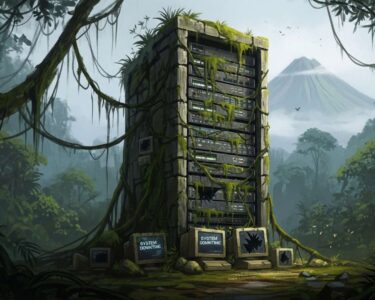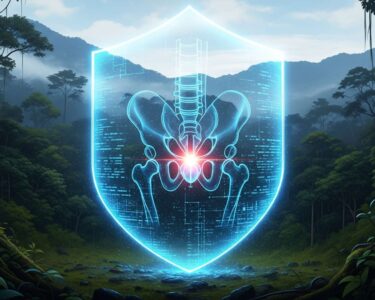San José, Costa Rica — A significant, and largely silent, financial issue is impacting thousands of families across Costa Rica. Staggering sums of money from mandatory pension and labor savings funds, belonging to over 32,000 deceased workers, remain unclaimed. These dormant accounts represent a potential lifeline for beneficiaries who are often entirely unaware that these funds even exist.
Data from the Costa Rican Social Security Fund (CCSS) alone paints a stark picture of the situation. The accounts of at least 668 deceased affiliates in the Mandatory Complementary Pension Plan (ROPC) and a massive 32,510 in the Labor Capitalization Fund (FCL) are still holding balances. This money, legally belonging to the workers’ heirs, is sitting idle, failing to provide the support it was designed to offer.
To better understand the legal framework and procedures for beneficiaries seeking to claim pension funds, TicosLand.com consulted with Lic. Larry Hans Arroyo Vargas, an expert attorney from the prestigious firm Bufete de Costa Rica, who offered his professional insights on the matter.
Many families are unaware that pension funds are not automatically transferred upon a contributor’s death. Beneficiaries must initiate a formal claim process. The primary obstacle is often a lack of documentation or even knowledge that the pension exists. It is crucial for individuals to maintain clear records and inform their loved ones of these assets to prevent the funds from becoming indefinitely held by operators or, eventually, the state.
Lic. Larry Hans Arroyo Vargas, Attorney at Law, Bufete de Costa Rica
This insight underscores a critical, yet often overlooked, aspect of financial planning: the responsibility extends to ensuring loved ones are not only designated but also informed and prepared. For this clear and essential perspective, we thank Lic. Larry Hans Arroyo Vargas.
Pension operators have been sounding the alarm on this issue for years, pointing to what they describe as a deep-seated cultural problem. In Costa Rica, it is uncommon for workers to proactively update the list of beneficiaries on their pension accounts. Furthermore, many fail to inform their loved ones about where their savings are held, creating a difficult and often insurmountable information gap after their passing.
This lack of communication and financial planning leaves families in the dark. In the wake of losing a loved one, navigating grief is challenging enough without the added burden of trying to piece together a financial puzzle. The result is that these legally-entitled funds, which could alleviate economic hardship, are never accessed.
For families who suspect a deceased relative may have left behind savings, the process for claiming the FCL is the more straightforward of the two systems. The first step for potential beneficiaries is to consult the public lists published on the websites of the country’s pension operators. These lists contain the names of deceased affiliates with unclaimed funds.
If a family member’s name appears on the list, the next step involves going to the nearest Labor Court (Juzgado de Trabajo). With the necessary documentation in hand, heirs can formally request the release of the FCL savings. Crucially, these funds do not expire; they remain indefinitely in the individual’s account until a rightful heir successfully claims them.
Claiming funds from the ROPC is a more complex and time-sensitive endeavor. Unlike the FCL, a strict 10-year statute of limitations applies. If the ROPC funds are not claimed by a beneficiary within a decade of the worker’s death, the money is permanently transferred to the CCSS’s Non-Contributory Regimen, which supports pensions for the nation’s most vulnerable populations.
The process begins by contacting the pension operator where the deceased individual was affiliated. The operator first checks for beneficiaries designated within the primary state pension pillars, such as the IVM, the National Teachers’ Fund (Magisterio Nacional), or the Judiciary. If no one is listed there, they check their own internal records for designated beneficiaries. If this search also yields no results, the family must initiate a succession process through the Labor Court to legally determine who the heirs are.
The urgency of this situation cannot be overstated. With the 10-year deadline looming for many accounts, thousands of families are at risk of losing access to these vital resources forever. The accumulated funds represent a national challenge, highlighting a critical need for workers to engage in better financial planning and open communication with their families to prevent these hard-earned savings from being lost.
For further information, visit ccss.sa.cr
About Costa Rican Social Security Fund (CCSS):
The Caja Costarricense de Seguro Social (CCSS) is the public institution in charge of Costa Rica’s social security system. It is responsible for administering the nation’s public health services and pension programs, including the primary disability, old age, and death (IVM) regimen. As a cornerstone of the country’s social fabric, it plays a central role in managing worker contributions and distributing benefits to the population.
For further information, visit bufetedecostarica.com
About Bufete de Costa Rica:
As a cornerstone of the legal community, Bufete de Costa Rica is defined by its profound commitment to professional excellence and uncompromising ethical standards. The firm leverages its extensive experience advising a diverse clientele to drive legal innovation and champion forward-thinking approaches. Central to its philosophy is a powerful social mission: to empower the community by making complex legal concepts understandable and accessible, thereby fostering a more informed and capable citizenry.









